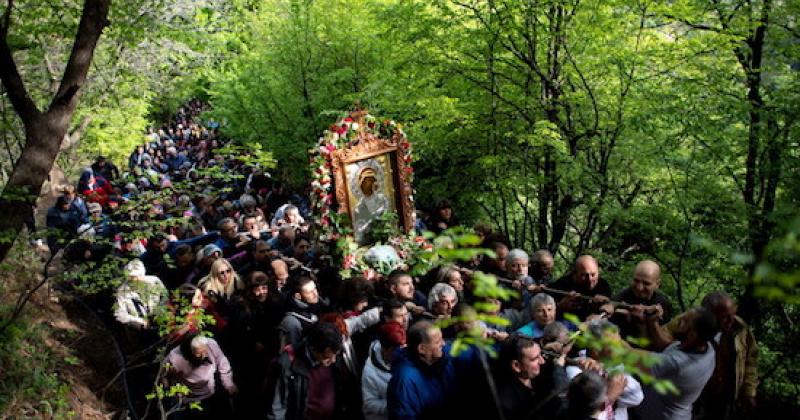After going to Bosnia in 2015, Sweden in 2016 and the Baltic states in 2018, Pope Francis is once again visiting the peripheries of Europe to meet two small Catholic communities -- in Bulgaria where there are 68,000 Catholics, and in Northern Macedonia where there are only 15,000.
The pope's trip also includes a ten hour stop in Skopje to pay tribute to Mother Teresa, who was born in the Macedonian capital although she was Albanian by nationality.
Even thought the main purpose of the journey is to visit the minority Catholic population, other aspects should not be overlooked.
"This trip will have an undeniable ecumenical dimension," observed a Rome official involved in promoting relations between Catholics and Orthodox and who sees a strong link between this papal trip and the one planned for Romania at the beginning of June.
Pope Francis will find a more solidified and rather open Orthodox Church in Romania. But matters are quite different in Bulgaria, where the Orthodox Patriarchate decided at the beginning of April that it was "impossible" for it to participate in most events of the visit.
"Priests of the Orthodox Church in Bulgaria were not given a blessing to participate," the patriarchate emphasized in a very bald statement.
The patriarchate did agree to the pope's visit to St. Alexander Nevski Cathedral, but it noted that "any form of liturgical celebration is unacceptable to us."
"In this context, the participation of the patriarchal choir will be impossible," the statement continued.
As a consequence, the pope's program was modified slightly at the last minute. His "silent prayer" at the cathedral has become "private prayer". And his "prayer for peace", which is planned for Sunday, has now being called simply a "meeting."
It should be added that the Bulgarian Orthodox Church remains in a difficult situation and has not completely recovered from the split that tore it apart after the fall of communism.
The patriarchate, which had already withdrawn from the ecumenical organizations to which it previously belonged, also refused to take part in the Pan-Orthodox Council in Crete in 2016.
"It is a stunted and withdrawn Church, which has retreated into the glorious memories of Saints Cyril and Methodius. It has few vocations, no longer many monasteries, poor theological formation and little practice," noted one observer.
Zone of influence
"But I want to believe that the pope's trip will be beneficial and will change people's thinking," said another.
The situation is different in Northern Macedonia. There the Orthodox Church comprises 65 percent of the population is no longer recognized by the majority of Orthodox jurisdictions.
The Archdiocese of Ohrid, which belongs to the Serbian Church, has been subject to real persecution there. This has led the European Court of Human Rights to condemn Northern Macedonia.
Officially, and in order not to anger the Serbian Church with which relations are difficult, Pope Francis will not meet leaders of the Orthodox Church in Skopje even though several will be present among the officials he will greet.
"But the emphasis placed on Mother Teresa should place the Orthodox issue on a second level," one Vatican official noted.
Social issues will be a priority for this trip to the poor Balkans region with Bulgaria being the poorest nation in the European Union.
It is also a highly political visit to a critical region located between the zones of Russian and Euro-Atlantic influence.
"The Balkans is still the most unstable region in Europe," commented Father Giovanni Sale in La Civiltà Cattolica, the storied Jesuit journal magazine whose articles are reviewed by the Vatican's Secretariat of State.
"Russia, China, Turkey and several western countries all regard the Balkans as an attractive region for exercising their ambitions and influence," he wrote.
In this context of "political and economic troubles" in several Balkan countries, "Moscow tends to try to mediate between the parties," Father Sale added.
"Russia still regards the Balkans as its zone of influence and intends to replace the European Union as a mediator in regional conflicts," he noted.
Since European populists influenced by Moscow tend to play a nationalist tune rejecting foreigners – an attitude that Francis again criticized in a speech to the Academy of Social Sciences on May 2 – his visit to a refugee camp near Sofia on Monday morning will be closely scrutinized with only three weeks.
